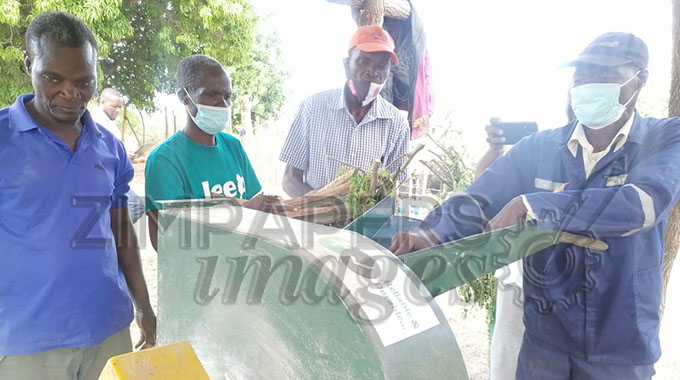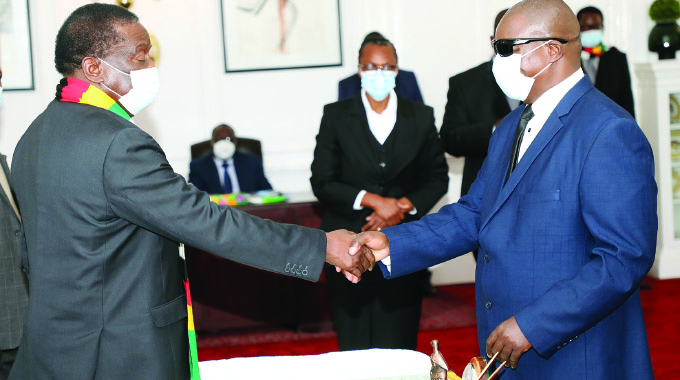Mutoko farmers thrive after acquiring new skills

Lynn Munjanja recently in Mutoko
Communal farmers in Mutoko have welcomed and applauded projects which have been introduced to them by the Government and its partners through the Zimbabwe Resilience Building Fund (ZRBF).
These projects have transformed the lives of farmers who were struggling to take care of their families. Farmers have since been equipped with skills and inputs to start their own businesses which will sustain them.
Zimbabwe Resilience Building Fund under the BRACT Programme (Building Resilience through improving the absorptive and Adaptive Capacity for transformation of a risk community), focuses on reducing over dependence on agricultural income in fragile environments by promoting alternative non-agricultural income sources.
Monica Nyamanhindi, a farmer, was assisted with a 180-egg incubator after the programme acknowledged her ambition in poultry. The hatchery answered Monica’s challenges and limitations with egg hatching.
“I would like to thank the Government and ZRBF because they have been an answer to my prayers. I was into poultry but my business was not going well because I did not have enough knowledge.
“I once lost 380 eggs and I gave up because I had now lost all hope. The coming of this programme was very helpful because I was trained from scratch on how to breed chickens and I was also provided with a hatching incubator. My business has thrived since then and I am very grateful,” she said.
Tarerwa Bushmeal Group from Tarerwa Business Centre in ward three were also equipped with skills in food preservation and livelihoods diversification. The group received technical skills training in bushmeal production and business management. The farmers use local tree species to make highly nutritious bushfeed for cattle.
The leader of the group, Fungai Gavhura said they were thrilled by how the programme had equipped them with skills they have turned into a livelihood.
“I am grateful for this opportunity that I got because such opportunities come once in a lifetime. My team and I are now able to provide for our families after selling our bushfeed.
“The situation at home is now better because sometimes I would get into fights with my wife over money issues as it was not enough to cater for everything. I am now equipped with knowledge to such an extent that even if ZRBF leaves I can now survive without facing any challenges,” he said.
Another farmer, Mr Shingirirai Makarisira adopted the Climate Smart Agriculture concept and has been producing small grains and implementing climate-smart techniques like infiltration pits and mulching.
Mr Makarisira said his life has been transformed by the projects because he no longer had dependency syndrome.
“I used to depend on other people for my income and survival. I am now able to provide for my family and am sending my children to school. I am grateful for these projects because they have transformed our lives.”
The UNDP-ZRBF is implemented by the Ministry of Lands, Agriculture, Fisheries, Water and Rural Development and other key Government ministries and departments with funding from the European Union (EU), Government of Sweden, Foreign Commonwealth and Development Office (FCDO), and the United Nations Development Programme (UNDP).








Comments